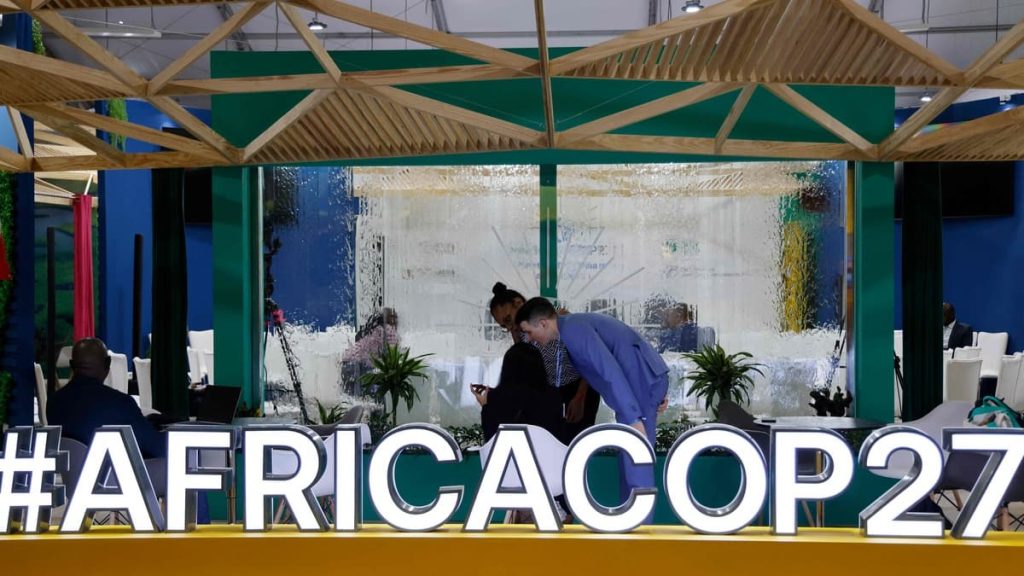If forecasts for this year are confirmed, the eight years from 2015 to 2022 will be the hottest on record, and the World Meteorological Organization (WMO) worried Sunday in a report that takes on more than “the facts of climate chaos.”
“With the start of COP27, our planet is sending a distress signal,” UN Secretary-General Antonio Guterres said in a video message broadcast in Sharm el-Sheikh.
He added that this “record of climate chaos” shows “very clearly that change is happening with catastrophic speed, destroying lives on all continents,” calling for a response to it with “ambitious and credible measures” within two weeks of this climate conference in Egypt.
With an estimated average temperature of 1.15°C warmer than in the pre-industrial era, 2022 is projected to ‘only’ rank fifth or sixth among those warmer years, due to the unusual effect, for the third year in a row. , from La La Niña oceanic phenomenon, which leads to lower temperatures.
But this does not reflect the long-term trend; It is only a matter of time before there is another warmer year,” insisted the World Meteorological Organization (WMO), a specialized agency of the United Nations.
Evidence for this trend, “the eight years from 2015 to 2022 are likely to be the eight hottest years on record,” estimates the organization, which will publish its final assessment in 2023.
The average temperature during the decade 2013-2022 is estimated to be 1.14°C higher than the pre-industrial era, versus 1.09°C over the period 2011-2020.
The Paris climate agreement aims to limit warming to less than 2°C, if possible 1.5°C. While science has proven that every tenth of a degree multiplies extreme weather events, this most ambitious goal of +1.5°C has become a “survival” goal.
On Sunday, OMM President Petteri Taalas commented: “The concentrations of carbon dioxide in the atmosphere are so high that a target of 1.5 degrees Celsius (…) is barely within the range of possibility.”
“It is already too late for many glaciers and melting will continue for hundreds or even thousands of years, with severe consequences for the water supply,” he added.
Thus, the Alpine glaciers in 2022 recorded a record loss of glacier mass, with a decrease in thickness of 3 to 4 meters, “much more than during the previous record in 2003”.
And the news is no better from the side of sea level rise, which is mainly associated with the melting of the ice caps.
The ocean level also set a “record” in 2022, with a rise of 10 mm since January 2020, or 10% of the rise recorded since satellite measurements began nearly 30 years ago. The rate of rise has doubled since 1993.
The planet has also been the victim this year of floods of extreme events, from historic floods in Pakistan to recurring heat waves in Europe, including drought in the Horn of Africa.
Commented Frederic Otto, a climate scientist at the Imperial University of London Company.
Dave Reay of the University of Edinburgh added: “If there is ever a year for demolishing and burning clouds that prevent climate action, this is the end.”

“Music guru. Incurable web practitioner. Thinker. Lifelong zombie junkie. Tv buff. Typical organizer. Evil beer scholar.”





:format(url)/cloudfront-us-east-1.images.arcpublishing.com/lescoopsdelinformation/L2F6OCLVY5CBBNQ32DX5S7TOBA.jpg)

More Stories
Sophie Adino officially receives her “wings” and will be able to fly in space by 2030
Plants grow mostly in the afternoon
Why should we not confuse academic freedom with the autonomy of science?